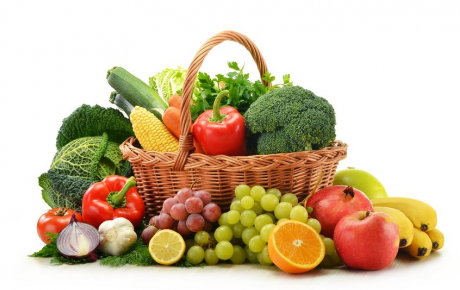VEGETABLES AS A CRUCIAL PART OF DIET
Vegetables are an important source of vitamins (C, beta-carotene, B vitamins) and minerals needed for sportsmen (potassium, magnesium, calcium, manganese, copper, zinc, molybdenum, iron) and carbohydrates – mainly starch (potatoes, pea, bean, lentil, corn), and a fiber that supports the digestive system.
DARK GREEN LEAFY VEGETABLES – kale, lettuce, leek, watercress are an important source of fat-soluble vitamins. In addition, they are a good source of calcium, magnesium, contain iron, vitamin C, beta-carotene. They have a positive effect on strengthening the immune system.
LEGUMINOUS PLANTS - beans, peas, soybeans, lentils, pea are a source of vegetable protein. They are an important element of a healthy balanced diet. It is thought that legumes supplemented with cereals provide a protein with a full set of necessary amino acids. Therefore, when preparing a dish, consider combining rice with red beans and chickpeas with millet.
ROOT VEGETABLES - beets, onions, garlic, carrots, leek, radish, celery, Jerusalem artichoke. They can improve your activities by stimulating circulation. They show a strong activity supporting the immune system.
OTHER VEGETABLES - broccoli, peppers, zucchini, asparagus, pumpkin
HOW TO HAVE VEGETABLES IN A MEAL?
• Serve salsa. Salsa (with tomatoes, beans or other vegetables) served as an addition to the main course, pasta, bread or on the underside of a tortilla.
• Mix them up. Sprinkle vegetables in dishes, in a baked version or in a sauce. Add chopped carrots to potato purée, prepare casseroles with vegetables or chopped spinach in a sauce.
• Wrap them. Hide vegetables in tortillas, sandwiches.
• Pack to school. Prepare a small bag or pack of small snacks. Cut vegetables in different ways: in round slices, slices, julienne "matches", diamonds, circles, stars, using baking molds. This way the youngest players will be encouraged to try them.
FROSTED OR FRESH VEGETABLES
When preparing meals, reach for fresh vegetables. It is worth using the frozen ones at the end of the winter or in the early spring. Frozen vegetables are prepared at the peak moment of plant growth, therefore they contain much more nutritional values than those stored in pantries during this period.
Nutritionist PSS Erwina Szymczyk
www.strategiezywienia.pl











